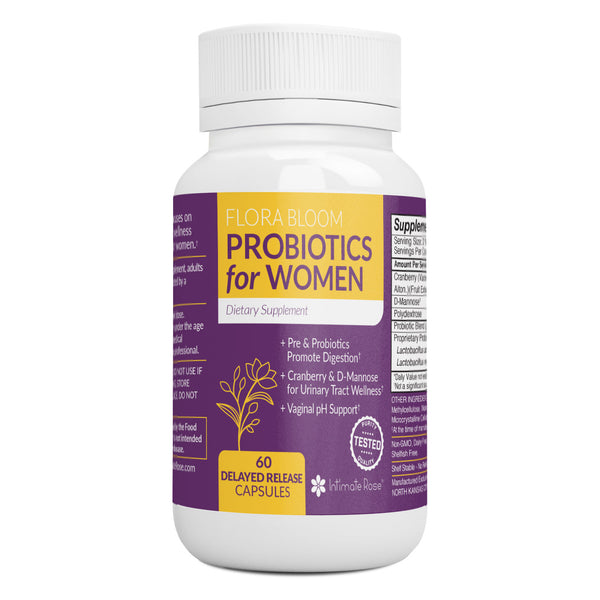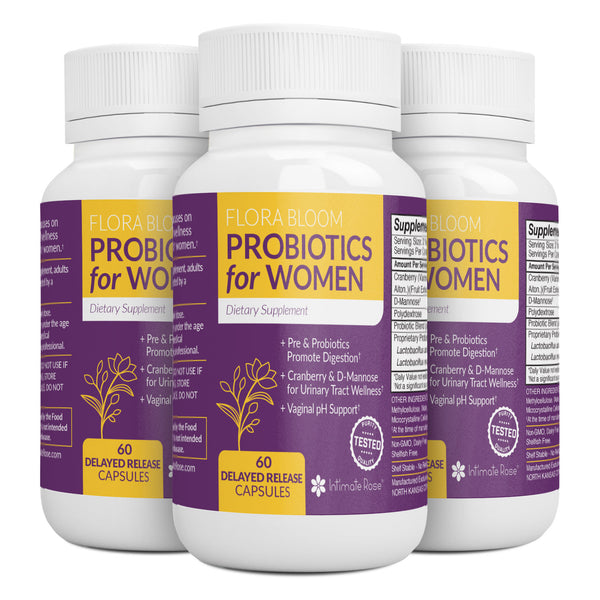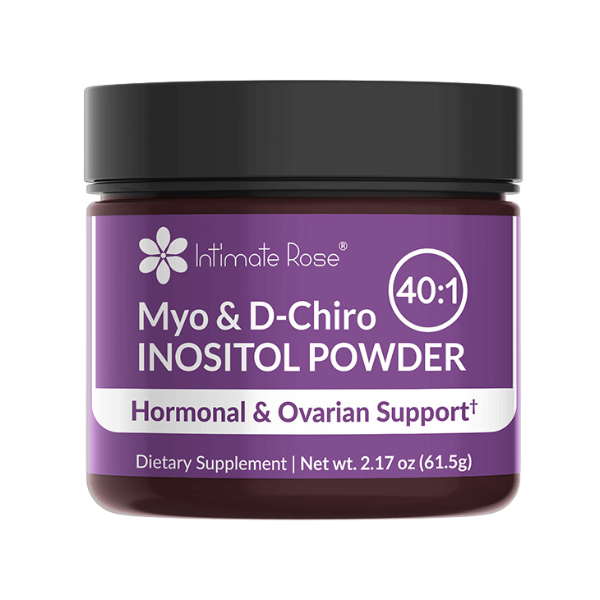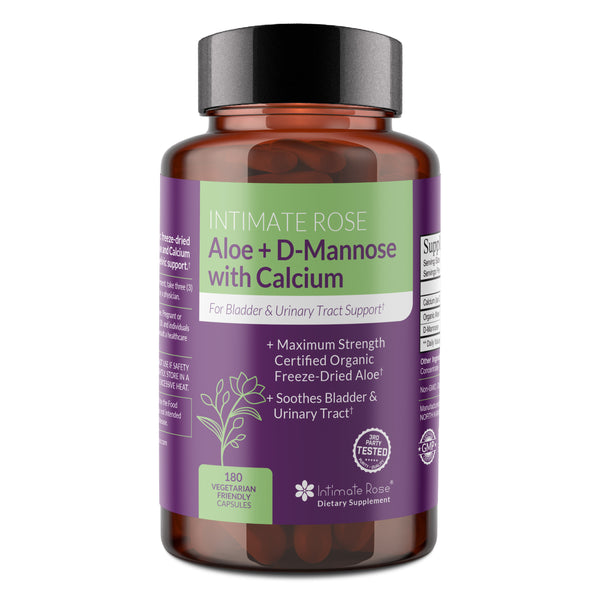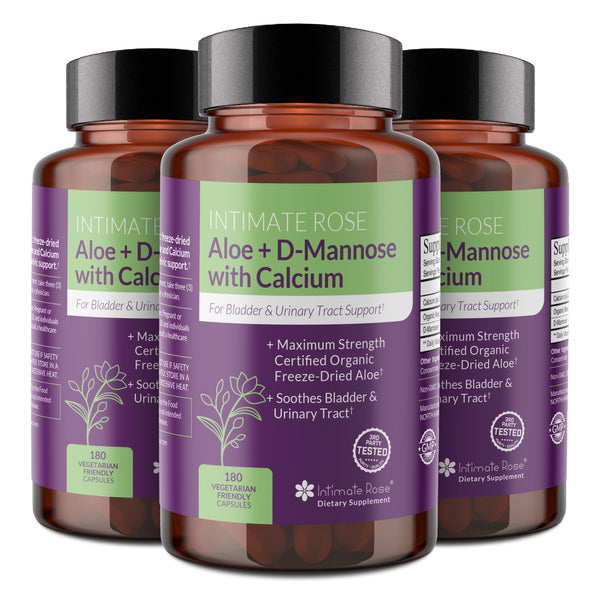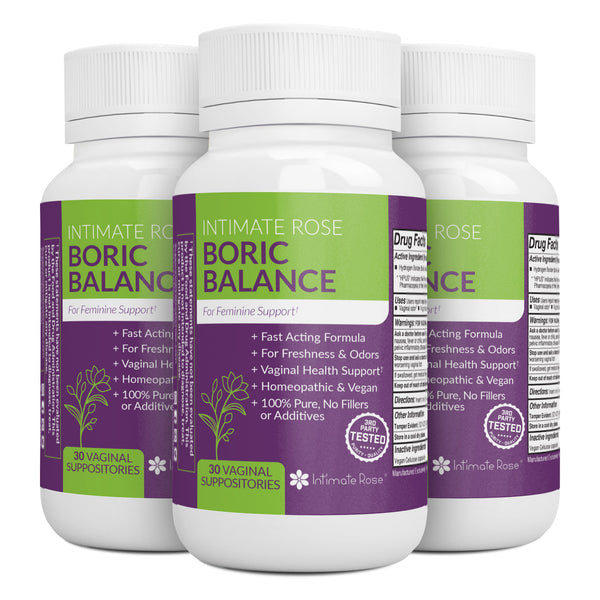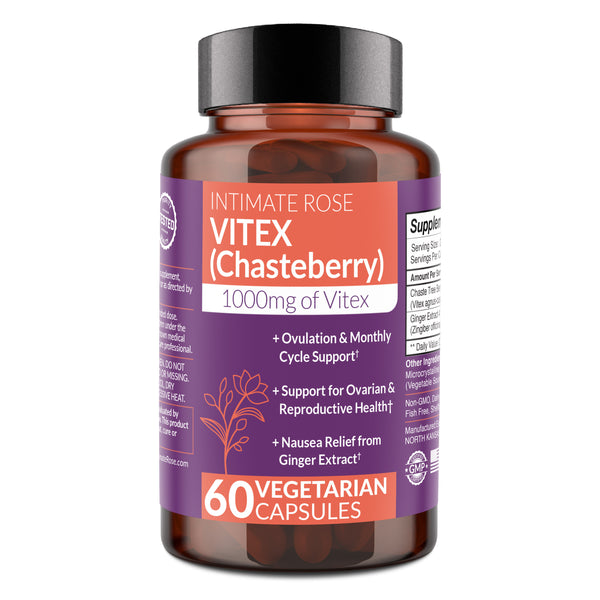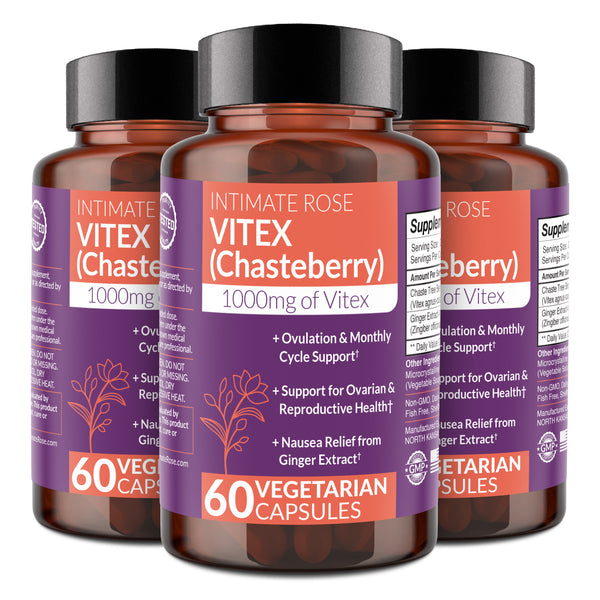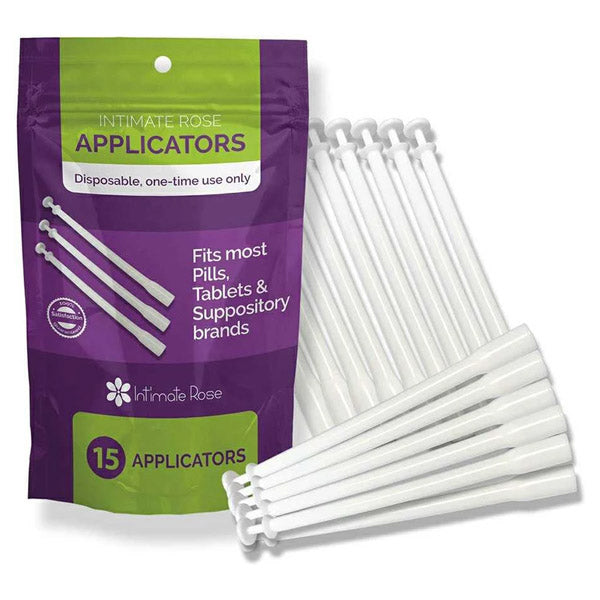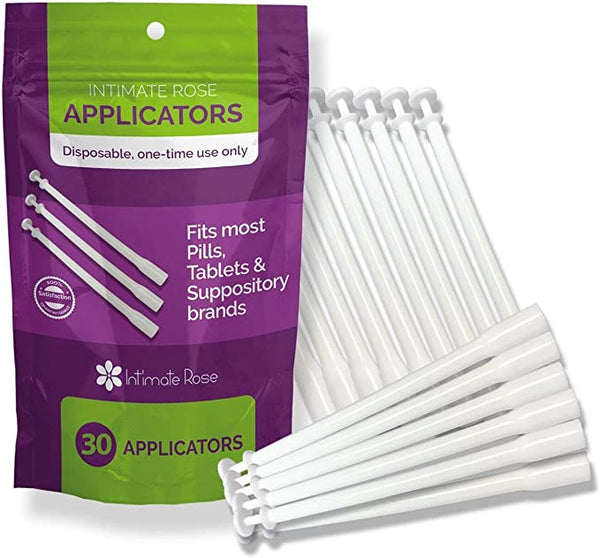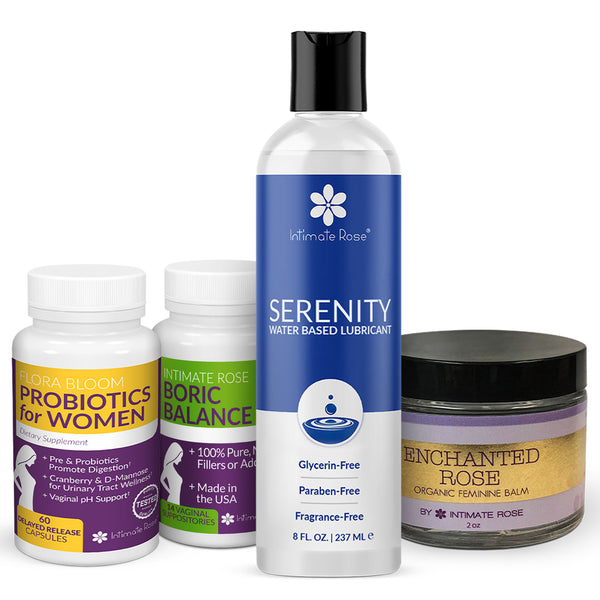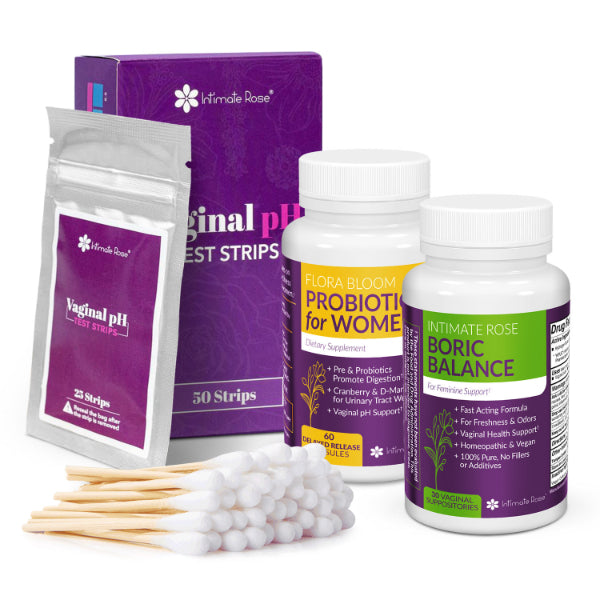Even though vaginas are naturally designed to clean themselves, when it comes to vaginal health, maintaining a balanced pH level is also vital. Below we’ve outlined the best vitamins and probiotics for female pH balance.
Vaginal pH Explained
In the field of science, the pH scale is used to measure how acidic or alkaline something is on a scale from 1 to 14, with the number 1 representing the highest acidic measurement and the number 14 the most alkaline. A healthy vaginal pH is mildly acidic, usually measuring between 3.8 and 4.5 on the pH scale.
This mild acidity is due to the presence of a natural bacteria in the vagina known as lactobacilli, which produces lactic acid to help minimize the production of alkaline bacteria, thereby maintaining a healthy vaginal pH balance.
When the production of lactobacilli decreases, the vaginal ecosystem becomes more alkaline, allowing harmful bacteria to thrive more easily and give root to infections like Bacterial Vaginosis (BV), Yeast Infections, or Urinary Tract Infections (UTIs). Alkaline conditions in the vagina also mean women are more susceptible to sexually transmitted infections like trichomoniasis.
What Causes Vaginal pH to Change?
Although experts consider a healthy vagina to measure between 3.8 and 4.5 on the pH scale, this is expected to vary depending on a woman’s age. During the female reproductive years, which typically occur between age 15 and 49, most women’s vaginal pH measures 4.5 or just below. However, it can measure higher before menstruation for some, and will usually rise slightly after menopause too.
Additionally, an unbalanced vaginal pH level can be caused by engaging in sex without a condom. Douching, or cleaning the internal genitals can also disrupt the natural acidic environment of the vagina. And for some women, taking a course of antibiotics for another condition can upset the production of lactobacilli.
What Helps to Keep Vaginal pH Levels Balanced?
Similar to a healthy digestive tract, the vagina relies on a healthy pH balance to function optimally. This balance depends on the appropriate amount of healthy bacteria and unhealthy bacteria. To maintain a healthy vaginal environment, women’s health experts recommend supplements for vaginal health:
Probiotics
Probiotics, which are living microorganisms, are widely known to encourage the growth of healthy bacteria in the digestive tract to boost gut health. So it comes as no surprise that women’s wellness experts suggest probiotics for improving vaginal health too.
In one recent study, a group of women who were given probiotics as well as antibiotics to treat Bacterial Vaginosis over 30 days, saw cure rates close to 90 percent. In comparison, those who received only antibiotics recorded a cure rate closer to 40 percent.
The Flora Bloom Probiotics for Women from Intimate Rose, which were recently recommended by Medical News Today, not only help in treating Bacterial Vaginosis and sexually transmitted infections, a regular intake greatly lowers the risk of UTIs too.
Aloe Vera, D-Mannose & Calcium Supplements
Loaded with antioxidants, vitamins, and enzymes, aloe vera has been linked to women’s health for centuries and remains widely used today in supplement form to improve pelvic health, bladder control, and Interstitial Cystitis (CI).
In its natural form, aloe vera contains vitamins B, B12, A, C, and E, as well as folic acid. It also contains small amounts of calcium, magnesium, potassium, zinc, and a lot of water. When enhanced by the correct dose of alkalizing calcium, it encourages a healthy pH balance. And adding D-Mannose into the mix, like the experts at Intimate Rose have done, only increases the benefits of all three.
Also known as mannose, D-mannose is naturally formed in the body by its close sugar relative, glucose. It is also found in vegetables like green beans, broccoli, cabbage, and tomatoes, as well as fruits like cranberries, apples, oranges, and peaches. Due to its ability to prohibit harmful bacteria from attaching to the urinary tract, it is a natural remedy for preventing and treating UTIs.
Recent studies revealed that 90% of UTIs are caused by E.coli bacteria entering the urinary tract and growing to the point that an infection can thrive. Researchers also found that because D-mannose is processed by the kidneys before leaving the body via the urinary tract, the harmful E. coli bacteria can be successfully flushed from the body via urine, while attached to D-mannose molecules.
Even though D-mannose naturally occurs in the body and certain plants, it is impossible to consume a sufficient amount of food to medically treat UTIs. For the perfect dosage, it is typically taken in supplement or powder form, like the Freeze Dried Aloe Vera Supplements with added D-Mannose & Calcium from Intimate Rose.
When To See a Doctor About Vaginal pH
If you regularly struggle with BV, UTIs, or yeast infections, speak with your doctor about trying a vaginal probiotic. They can also help if you experience itching, a burning sensation when urinating, unusual discharge, or an unpleasant vaginal odor.
Ensure that the probiotics prescribed include the strains Lactobacillus Acidophilus, Lactobacillus Rhamnosus, or Lactobacillus Reuteri, which are specifically known to prevent harmful bacteria from adhering to the vaginal wall. And make sure to follow the instructions carefully. Some probiotics are used as vaginal suppositories, while others are for oral use.
Additional Ways to Maintain a Healthy Vaginal pH
To maintain a healthy vaginal pH, always practice safe sex by using a condom. If you are in a monogamous sexual relationship, try to urinate after intercourse to flush out the alkaline semen that could disrupt the acidic environment of the vagina.
After using the lavatory, wipe from front to back to prevent spreading any harmful bacteria from the anus to the urethra.
Refrain from douching or cleaning the vagina. The inner female gentalia is designed by nature to clean itself. To keep the outer genitalia (vulva) clean, simply wash the area with warm water and a clean washcloth each day.
Change out of sweaty workout clothes or wet swimsuits as soon as possible. Avoid wearing jeans or pants that are too tight, and consider switching to cotton underwear.
Conclusion
While probiotics and vitamins are not necessary for every woman, they are incredibly beneficial in staving off pH imbalances and vaginal infections. But they are especially helpful for those who experience regular BV infections, yeast infections, or UTIs.
If you are considering a probiotic or D-Mannose supplement, speak with your doctor to ensure you are taking the proper dose and that they do not react with any medication you are taking for other conditions.
References
National Center for Biotechnology - Anukam K, et al. (2006) - Augmentation of antimicrobial metronidazole therapy of bacterial vaginosis with oral probiotic Lactobacillus rhamnosus GR-1 and Lactobacillus reuteri RC-14: Randomized, double-blind placebo-controlled trial - https://pubmed.ncbi.nlm.nih.gov/16697231/
National Center for Biotechnology - A Hallen, C Jarstrand, C Pahlson – Treatment of Bacterial Vaginosis with Lactobacilli - https://pubmed.ncbi.nlm.nih.gov/1523530/
Mayo Clinic – Yeast Infection - https://www.mayoclinic.org/diseases-conditions/yeast-infection/diagnosis-treatment/drc-20379004
Mayo Clinic – Urinary Tract Infection - https://www.mayoclinic.org/diseases-conditions/urinary-tract-infection/symptoms-causes/syc-20353447
Health Benefits Times – Health Benefits of Aloe Vera - https://www.healthbenefitstimes.com/aloe-vera/
European Review for Medical and Pharmacological Sciences - D-mannose: a promising support for acute urinary tract infections in women. A pilot study - https://www.europeanreview.org/wp/wp-content/uploads/2920-2925-D-mannose-a-promising-support-for-acute-urinary-tract-infections-in-women.-A-pilot-study.pdf
National Center For Biotechnology Information - D-mannose powder for prophylaxis of recurrent urinary tract infections in women: a randomized clinical trial
https://pubmed.ncbi.nlm.nih.gov/23633128/
The Ultimate Vaginal Bundle


Things Off Down There?




